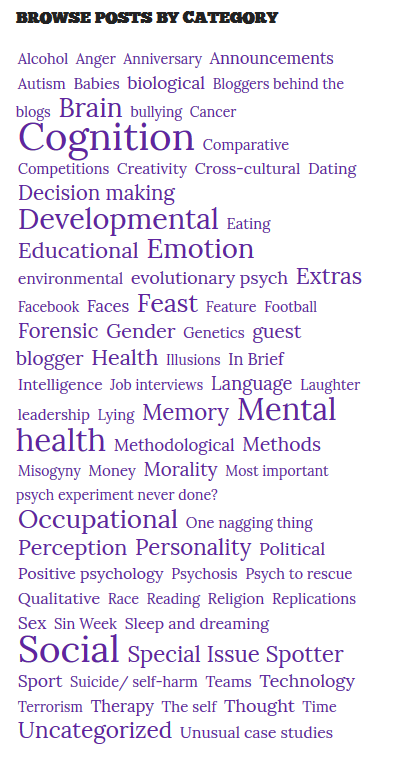
It is very rare that I find someone who is not at least partially interested or curious about the topic of psychology.
Psychology is the science of human behaviour, and given that most of us have to deal with our own and other’s behaviour, we are at least all partially invested in understanding it better.
Despite such widespread interest, I don’t think the findings of psychological research are that well communicated to the general public (i.e. non-psychology trained people).
Psychological research that is well communicated tends to be limited to discussion of mental illness, mental disorders and more recently well-being.
There is also a mountain of ‘pop psychology’ that you can find published in books and self-help websites, but these are written with significant conflicts of interest (i.e. author wants to make money)
But psychological research is far broader than you might initially think.
When we first put together the 7 days of psychology website – a psychology week initiative aimed at educating the public better – it was clear that we couldn’t even cover the breadth of psychology by considering 7 different fields.
In practice, psychology covers a dizzying range of topics – just spend a moment reading this article to see.
But I digress…..
My original point was that psychological research is generally not well communicated to the public.
There are however some exceptions to this rule.
The BPS Research Digest is produced by the British Psychological Society (we have an equivalent here in Australia). Running since 2003, the BPS Research Digest showcases psychological science. The editors and contributors read and critically appraise psychological research and present the findings in short, entertaining and informative articles.
It is without doubt, one of the best examples of science communication in psychology.
Why?
- the content is varied – check out their tag cloud

- the articles are typically on topics that are relevant to us all (e.g. relationships) or controversial/interesting (e.g. implanted memories)
- the articles are brief enough to read quickly, but detailed enough to give you a clear take-away message
- they publish regularly
- they spread their content across multiple social media channels
- they make content informative whilst still connecting it closely the psychological research on which it is based
Interacting with their content is easy. They have the standard social media presence – facebook, twitter, google+, and tumblr and you can subscribe via email.
I recommend you take a look.

